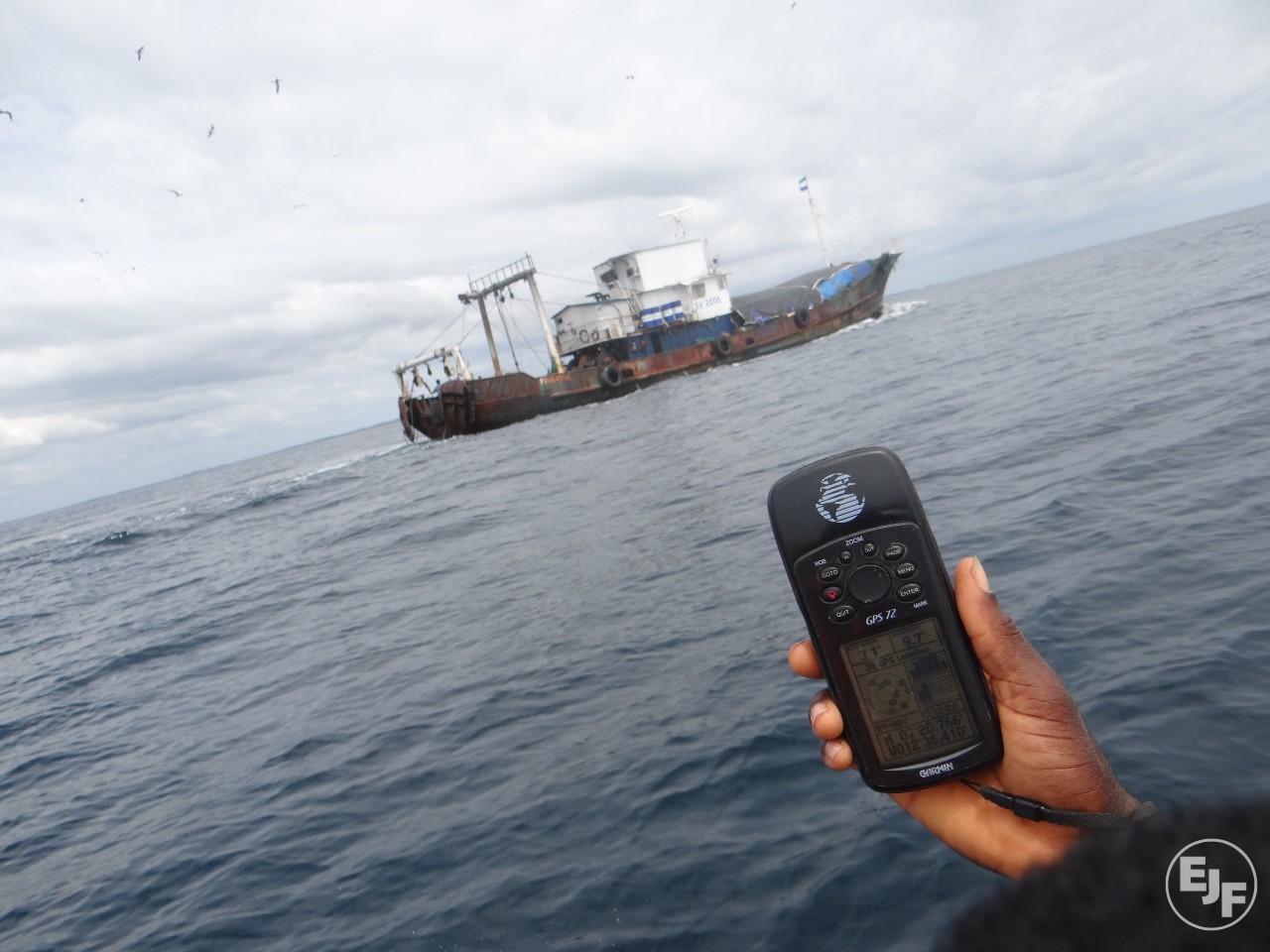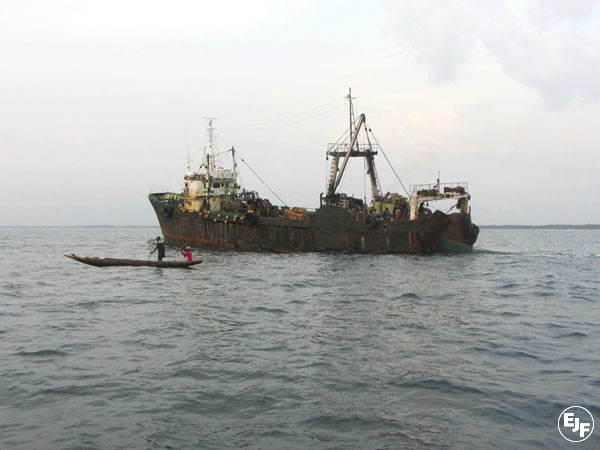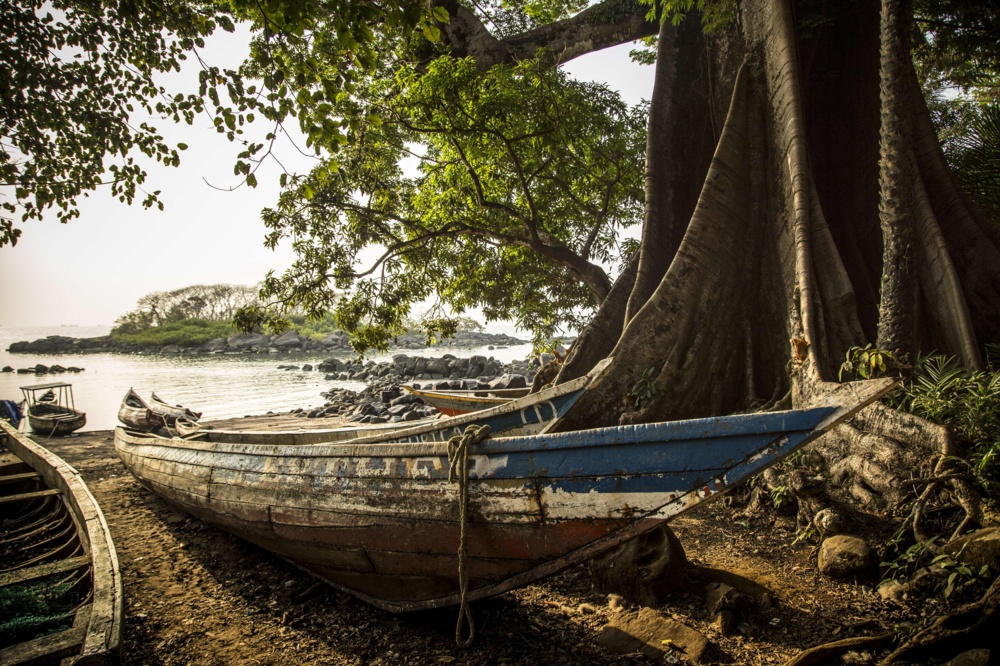
Community spirit and co-management: EJF in Sierra Leone
Bonthe is a bustling fishing town on the coast of Sherbro Island, Sierra Leone. Canoes come and go, and the fish markets are noisy with haggling buyers and bright with fish scales. But there is a shadow hanging over the community – illegal fishing is putting this way of life under threat.
Industrial trawlers illegally invading the exclusion zone that is reserved for canoe fishers are able to hoover up vast quantities of fish. Fish that should be feeding local people, and providing income for the fishers and their families.
The fishing community in Bonthe was ready and eager to take action when EJF first started its work there in 2010. The training programme was simple but effective, empowering fishers to gather evidence, such as geotagged photos, on the industrial vessels they saw fishing illegally. EJF then collated the evidence, creating an illegal fishing alert that was sent to both the Government of Sierra Leone and the EU.
In this way, the government has been able to catch and fine numerous perpetrators, collecting hundreds of thousands of dollars and deterring others. Coastal communities no longer had to look on helplessly as industrial trawlers illegally took their fish – they were able to take action.
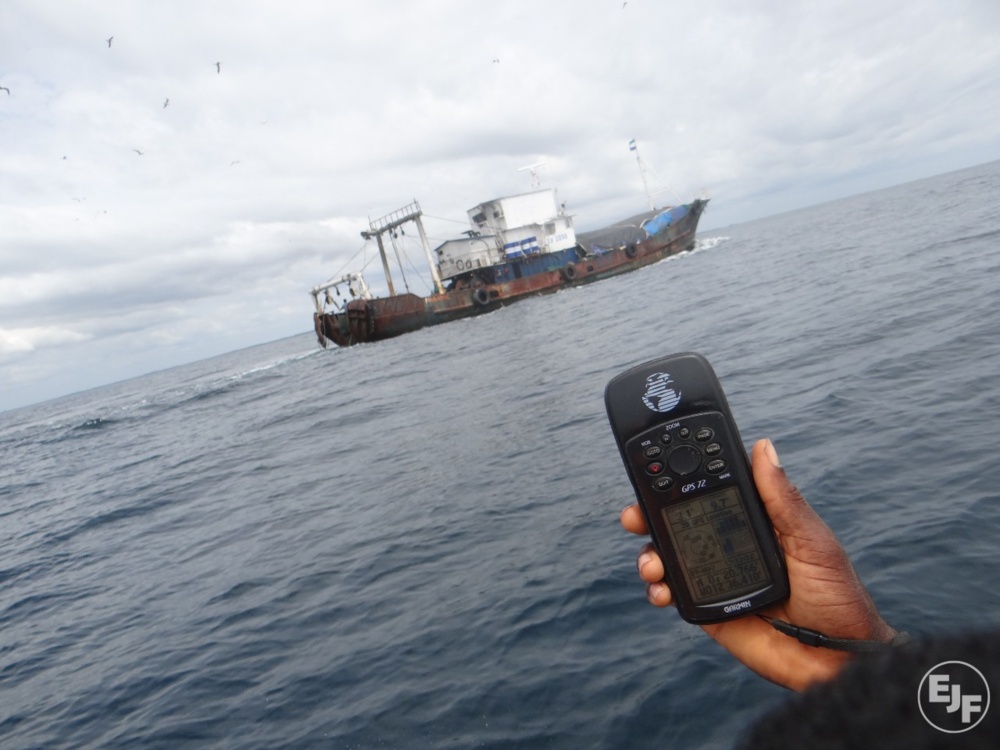
The story of the Mahawa
One success story among many was that of the illegal trawler the Mahawa. A member of our community surveillance network, A*, heard local talk of a trawler in the inshore exclusion zone in November 2018. Enlisting the help of the canoe fishers, he put to sea, getting close enough to take good quality, geotagged photos.
A then sent the images to EJF head office, and we began to uncover the full story.
The Mahawa is a 135 gross tonne trawler, and although it is operated by a Korean-owned company based in Sierra Leone, the country’s latest licence list showed that the vessel was registered in neighbouring Guinea.
After being alerted by EJF, the Guinean authorities called the vessel back to port and – by sharing information with Sierra Leonean counterparts – discovered that it was operating under both Guinean and Sierra Leonean flags.
As a result, Mahawa’s owners were fined by the Guinean government. Sierra Leonean authorities, for their part, officially removed the vessel from the country’s registry.
Mahawa’s story is far from rare, and shows how illegal operators use the shocking lack of transparency in the fishing industry to their own ends.
Criminal operators create as much confusion as possible around vessel identities and change flags regularly, either to escape sanction or avoid rules such as quotas. Since only a very few countries have made their fishing vessel registries public, verifying the registration of vessels is difficult, if not impossible. Some owners go as far as removing their boats from all registries, becoming stateless to avoid oversight at all costs.
The sharp eyes and quick reactions of the local community revealed a criminal operator, but also a much greater systemic problem that plagues fisheries worldwide – the lack of transparency.
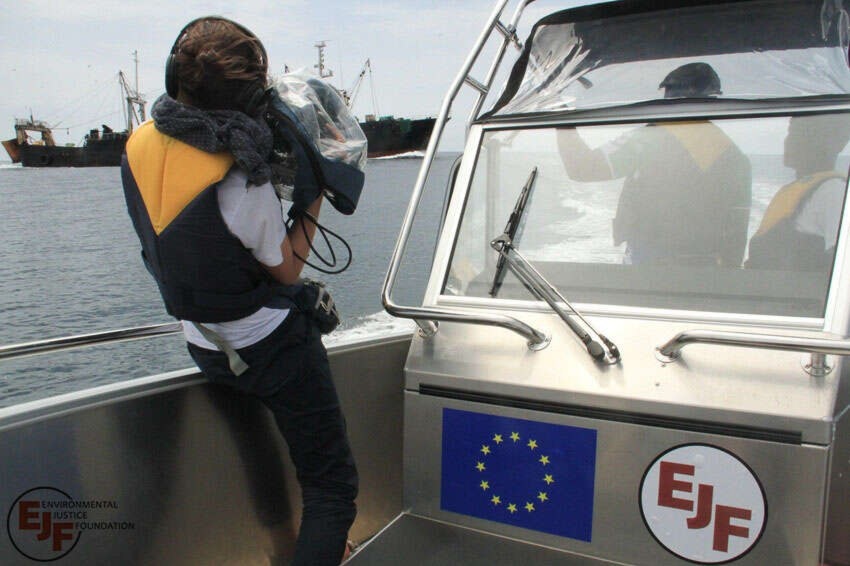
Above and beyond
As well as helping to empower an effective network of citizens protecting marine ecosystems, EJF’s work in Sierra Leone became an integral part of the community in more ways than one.
EJF patrol boats, often already on the water, fast and easily mobilised, were used as water ambulances to facilitate fast transport from remote coastal areas to medical facilities.
They also served as lifeboats. In one incident in 2014, a boat overloaded with people capsized off the coast of Sherbro Island. The EJF crew acted swiftly to help those in difficulty, many of whom could not swim, by joining the Sierra Leone Navy patrol mission. In total, 33 lives were saved.
In another case in 2013, the EJF boat rescued 60 people from the water when a passenger boat, travelling from Yoni to Bonthe, overturned after hitting a sandbank. To date, more than 100 lives have been saved.
The Mayor of Bonthe, Joe Leyemie Sandi said: “EJF used their boat to report on bad fishing and industrial vessels that were coming into marine protected areas. The local people were very satisfied, because of EJF we were able to reduce the number of trawlers that were coming very close to shore to destroy the fishing nets of our people. EJF also provided in emergencies. In 2013, a boat capsized, and EJF’s boat was the only one available to rescue those passengers. If EJF had not been there at the time we would have lost a lot of people.”
We are enormously proud of our team in Sierra Leone, not only for their hard work helping to bring illegal trawlers to justice and protect local fish populations, but also of their selfless actions as they risked their lives to carry out difficult night-time rescues at sea.
We look forward to working once again with Sierra Leone’s passionate and committed fishing communities.
*Identities have been protected.
SIGN UP FOR OUR EMAILS AND STAY UP TO DATE WITH EJF
